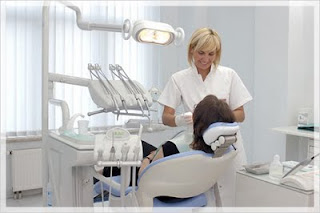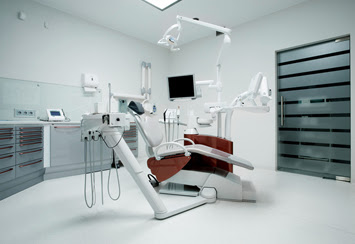Growing awareness of health prevention and constantly improving economic conditions contribute to increased interest in Central and Eastern Europe. Over the years we can observe a significant increase in the number of dentists and dental companies, which is a result of ever-increasing demand for these services, the level of which in Poland is just one of the highest in Europe.
For the dental sector (dentists and dental technicians) the enlargement of the European Union brings many new challenges - in fact only benefits. Within the framework of the Lisbon strategy implemented by the EU - the aim is the dynamic growth in employment, the key task is to open the currently split domestic markets in the EU, so that a fully functional EU services market was comparable to national markets.
For the patients it means:
1. additional capabilities - flexibility and the choice of treatment
As a result, the European Court of Justice ruling in 1998 for dental treatment, patients have the possibility of treatment in any EU country and they receive reimbursement of its expenditure from domestic insurers.This solution is generally beneficial for patients because it allows their mobility, and rising expectations of patients will encourage dentists to continuously increase their skills, raise the quality of dental services, increase awareness of preventive dental care, develop fine and comfortable form of treatment involving not only to repair damage caused but also to ensure that patients keep their teeth for as long as possible, with an attractive appearance and well-being.
2. Polish dentists in demand- both in Poland and abroad.
Dental services market in Poland before 2005 was heavily saturated, year by year, the number of graduates of dental departments increased. Famous for training a large number of dentists, the Medical University of Lublin, every year, ended with a very large number of dentists - several times actually surpassing the market demand for dental services. For those young and inexperienced doctors in the early stages of their career it was very difficult to operate in the Polish conditions. Most young dentists from Lublin, Bialystok, Kielce, Lodz, therefore emigrated to Warsaw. In the capital, the competition was and is a huge demand for dental services, however, much higher than in other cities. This was influenced by higher earnings primarily from Warsaw. After the entry of 10 new countries to the European Union, due to the massive 'dental visits of the English, Danes and Germans, the situation changed dramatically - the interest in dental services in major cities has increased.
Fortunately, after Polish accession to the EU, young Poles are free to find work outside Poland, and this alternative is used by more and more dentists not only the Polish ones, but also from other countries in Central and Eastern Europe. The prospects for the Polish dentists are very optimistic, because of the Europe's free market, low prices of Polish services (in comparison with the countries of Western Europe) and very high quality of these services.
3.Freedom of dentists in the provision of services and setting up offices wherever they wish.
The European market opens for dentists.
Members of the German dental industry - dentists, dental technicians and producers - are well prepared to act on the European market. Highly qualified, flexible and innovative, they can count on high potential European market, whose population is now 453 million. Their problem is only the high cost of treatment in the German offices. It is the great superiority of the Central European countries - mainly Poland.
4. Foreign "tourists" visiting dental offices.
According to data from the Polish Information and Foreign Investment Agency in 2005, visitors from abroad spent on treatment in Poland more than 200 million PLN. Experts estimate that this sector over the next few years will increase by as much as 25-30% annually. Mostly, for health tourism, Poland is visited by the Germans, Brits, Danes, Canadians. Englishmen are attracted mainly by the possibility to make use of dental services, several times cheaper in Poland than in Britain. Similarly, Danes and Swedes. There is no shortage of the Germans as well- they're going to Poland particularly for treatments and operations. Their Mecca is Szczecin, where nearly 800 dental offices can be found.Their owners often work with travel agencies that acquire their customers, they often organize promotional campaigns and hire coaches, which carry patients across the border. Guests also enjoy spa treatment rooms, beauty salon, hairdressers. One customer leaves sometimes even a few thousand euros in Polish doctors' offices, including nearly half of the dentists .. International customers are becoming more involved in Central European dental market. In Poland they often spend even two weeks, passing comprehensive treatment. Most of them are the British, who have a problem with their own health care system. Because of the fact that they choose Poland, the Czech Republic or Hungary, they save from a few to several thousand pounds. The owners of offices in these countries invest tens of millions of zloty to meet the demands of the customers. It is worth fighting for.
These countries, especially Poland, offer:
• very high standard of dental services,
• modern equipment,
• high quality of treatments,
• attractive prices
• a professional medical staff.



No comments:
Post a Comment